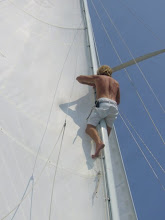In 2010, Iceland finds itself dealing with the aftereffects of a national bankruptcy. As the third Arctic nation that does not have any more territory to gain under the guidelines of the United Nations Commission on the Limits of the Continental Shelf—Finland and Sweden being the others—it is in the best interests of Iceland to act cooperatively in the international arena, especially since Iceland maintains no navy, army or air force and has a Coast Guard limited to only three offshore vessels, one coastal use hydrographic vessel and four aircraft. Indeed, Iceland's newest Coast Guard vessel, the ICGV Týr, was launched in 1975.
Iceland is currently working with the four other Nordic states on a cooperative defense agreement. When the United States withdrew troops from the Keflavik air base in 2006 Iceland lost much of its airspace surveillance capability. However, the Nordic countries as well as Canada, Germany, Italy, Spain and Poland have all indicated that they are interested in taking part in air patrols of Iceland. Maintaining air patrols mainly targeted at providing soft security would provide Icelandic defense authorities better knowledge of what is happening around their country while strengthening Icelandic jurisdiction in the region.
Iceland represents a crucial link along the major sea route running from Murmansk, Russia to the United States. As such, it will be necessary to keep Icelandic maritime monitoring systems such as radar arrays up to date and well-staffed to ensure continual monitoring of vessels moving along this sea route. Effective and timely dissemination of Icelandic vessel monitoring information in an integrated fashion with the Nordic nations as well as Russia and the United States will allow for more complete monitoring of tanker and other maritime traffic through the region. The Nordic nations address vessel monitoring as a priority in the Stoltenberg Report. With regard to search and rescue operations, the North Atlantic Coast Guard Forum, consisting of Canada, the United States, Denmark, Iceland and Norway, will need to be integrated with this information system. To dilute the costs of northern search and rescue operations, it is in the best interest of Iceland to participate in the development of a Nordic Coast Guard.
Iceland also faces a significant and, to a large extent, unique challenge among the Arctic nations: it will disproportionately bear the risk associated with increased energy shipments through its waters, in particular from Russia and Norway to the United States. This provides further incentive to Iceland for security cooperation with, in particular, the Nordic states. Indeed, an oil spill or similar catastrophe in or near Icelandic waters could cripple the country's economy.
Iceland does not have indigenous people whose culture it must serve and protect. However, it does have an economy that has traditionally been maritime-focused and as such it is important to the citizens of Iceland that the waters in and around their country stay clean and that fish supplies are monitored and maintained in a sustainable fashion. While Icelandic fishermen have been criticized by their neighbors – including the British and Scottish – for overfishing, Iceland's individual transferable quota system has recently worked reasonably well to manage the Icelandic fisheries. Individual transferable quotas allot a quota of each fish species that a specific boat can catch based on that boat's previous three catches of that fish species. These quotas are traded amongst boats and there are no limits on the number of days a boat can fish, only on the total tonnage allotted by the quota system. Increased fisheries monitoring coordination with neighboring states is crucial to the Icelandic economy and could help to ensure that its fish stocks are allowed to stabilize at a sustainable level.
Iceland has no significant need for icebreakers of its own. Sea ice in the waters near Iceland originates from the Denmark Strait located off the northwestern coast of Iceland. While ice in the region is quite common, it lies primarily on fishing rather than commercial shipping grounds and is generally considered a part of life for Icelanders. The winter sea ice off of northwest Iceland would not debilitate maritime transport because there is a sea route immediately to the south of Iceland as well that is largely ice-free year round. Iceland currently maintains weekly charts of ice conditions which are readily available online; however, integration of the various Arctic ice regimes could provide greater continuity amongst systems and further minimize user error interpreting ice charts.
While Iceland has begun to auction some oil and gas leases, government officials admit that they have little data coverage on the amount of oil and gas that may be contained within Icelandic offshore territory. Pricing for these leases, which are typically deep water and highly risky drilling sites, is therefore more speculative than for leases about which more data on the field's potential yield is known. Iceland prides itself as being a sort of environmental haven despite a history of overfishing that indicates Icelanders do not always protect their resources well. Any broad development of the Icelandic Exclusive Economic Zone for oil or natural gas extraction would be accompanied by political backlash. Therefore, Iceland should focus on regional security and search and rescue cooperation, limited strategic exploitation of natural resources and the development of monitoring infrastructure to better oversee and protect its environment.
Subscribe to:
Post Comments (Atom)




No comments:
Post a Comment